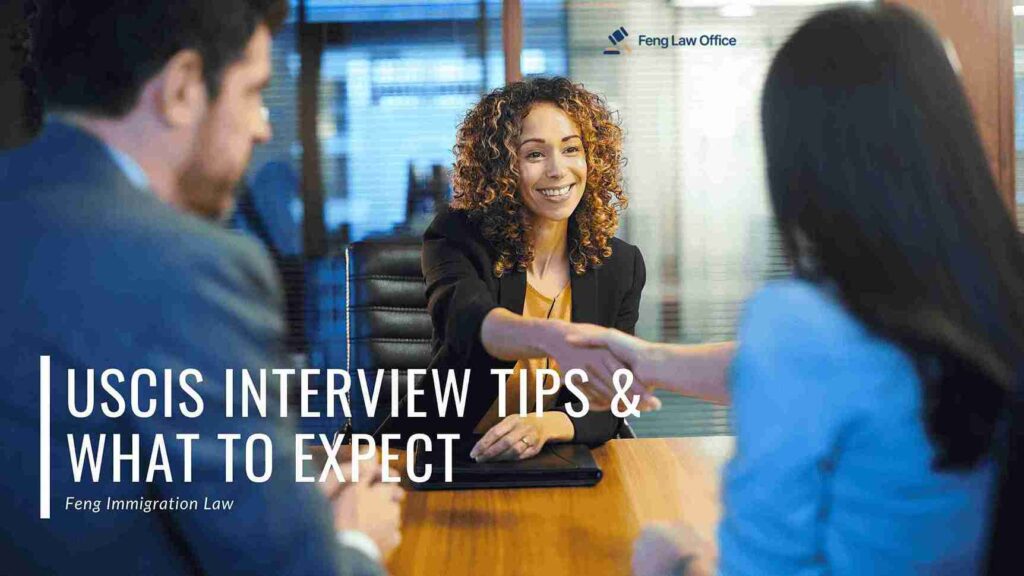
Immigration interview Most family and naturalization applicants will be scheduled at a USCIS field office. An officer verifies identity, reviews forms, and tests eligibility—relationship evidence for green cards or civics/English for naturalization.
Documents to bring (checklist)
- Government-issued IDs, passports, EAD/AP if applicable
- Original civil documents (marriage, birth, divorce, police records)
- Updated relationship evidence: joint lease, bank accounts, insurance, taxes, photos
- For N-400: selective service proof (if required), travel history, tax transcripts
- Any new evidence since filing, plus copies
Interview day tips
- Arrive early with appointment notice and security-friendly items only
- Answer truthfully and succinctly; don’t guess—ask to clarify
- Stay consistent with previous filings
- Bring an interpreter if allowed/needed; for some case types, your attorney can interpret if permitted
- Attorney presence helps protect your record and address legal issues on the spot
After the interview
Decisions may come the same day or later. You could receive:
- Approval and next-step instructions (e.g., oath ceremony for N-400)
- RFE/NOID requesting more evidence or addressing concerns
- Continued for further review
If you get an RFE or NOID
Act quickly and precisely. An immigration attorney can structure evidence, affidavits, and legal arguments that directly respond to the officer’s concerns.
Call to action
Want a mock interview, document check, or representation at the appointment? You can Google “immigrationlawyer near me” and retain an immigration lawyer for calm, thorough preparation.
FAQs
- Can my lawyer attend the USCIS interview?
Yes. Your attorney can be present, help clarify legal issues, and ensure a clean record. - What if I can’t attend on the scheduled date?
Request a reschedule as soon as possible with a good reason. Missing without notice can lead to denial. - Do I need an interpreter?
If you’re not comfortable in English, arrange an interpreter per USCIS rules. Ask your attorney about current policy and logistics. - How long does the interview last?
Most run 1–2 hours, but complex cases can take longer. - What if the officer separates us for a marriage interview (Stokes)?
Stay calm and truthful. Consistency is key. An attorney can prepare you for detailed, separate questioning.



